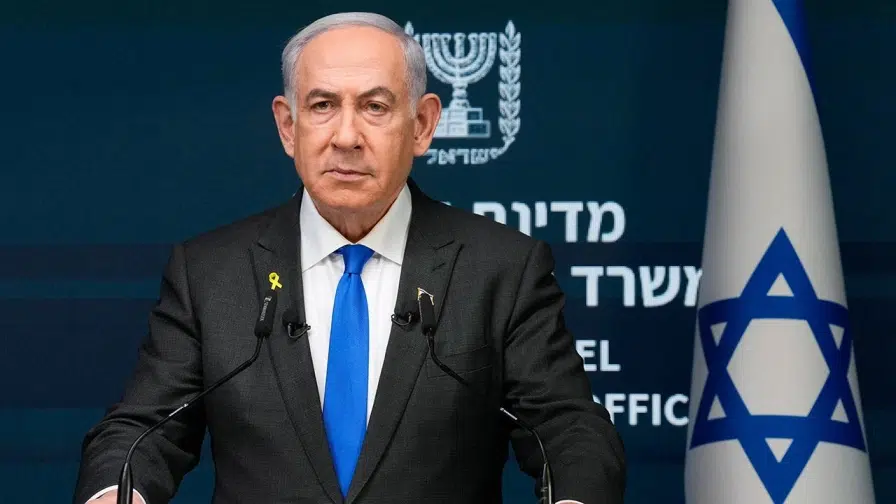The political aftershocks of Donald Trump’s 2024 election victory are reverberating across global power structures, particularly in regions such as South Asia, where the United States has long held significant influence.
For many in Pakistan and other countries with a strong historical reliance on US policy, Trump’s return to office is not just a domestic event; it represents a critical turning point in the broader international order.
Central to this shift is the growing perception that Trump’s victory marks a symbolic defeat for what many describe as the “deep state”—the entrenched bureaucratic and institutional forces within the U.S. government that Trump has consistently sought to challenge.
Trump’s animus toward the US establishment has roots in early confrontations during his first term, most notably over the Steele dossier and its role in tarnishing his reputation.
What began as a political vendetta against him soon evolved into a wider ideological battle, with Trump and his supporters becoming increasingly aware of the establishment’s opposition to his vision of American governance. Having weathered numerous efforts to undermine or remove him from power, Trump’s return is now viewed by some as a repudiation of the very forces that sought to curtail his influence.
This dynamic has created a palpable sense of panic among certain segments of the US political establishment, as highlighted by journalist Shane Harris, who notes the fear that Trump if reinstated, would use the full authority of his office to target those he perceives as enemies within the federal government.
This sense of insecurity is not just confined to Washington, DC, it extends to US allies and adversaries alike, especially in regions where American policy has historically been a stabilizing—or destabilizing—force.
In South Asia, particularly in Pakistan, the implications of a Trump presidency are being closely watched. The notion that US-backed regimes in the region might face increased insecurity is gaining traction, as many fear that Trump’s administration will no longer prioritize traditional alliances in the same way.
The announcement of Mike Waltz as Trump’s nominee for National Security Advisor further underscores this shift. Waltz, a staunch critic of China, is expected to maintain a hardline US policy towards Beijing, which is likely to dominate American foreign policy for the foreseeable future.
Waltz has publicly called China an “existential threat” to the United States, aligning with Trump’s broader view that the US must confront Chinese economic, technological, and military ambitions head-on. This signals a continuation of the confrontational approach to China that characterised Trump’s first term, with significant implications for US relations with countries like Pakistan, which has strategic ties to Beijing.
Moreover, the appointment of figures like Waltz suggests that the US will continue to prioritize the Indo-Pacific region, with a particular focus on countering Chinese influence.
This could lead to a recalibration of US foreign policy in South Asia, where the dynamics of security and economic cooperation are shifting in response to Beijing’s growing footprint. The fear in Islamabad and other regional capitals is that Trump’s foreign policy will be less focused on traditional alliances and more on strategic imperatives in the face of a rising China.
On the issue of global conflicts, Trump’s stance on the war in Ukraine illustrates a broader divergence from the previous administration’s policies. Unlike President Biden, who has committed significant military and financial support to Ukraine, Trump has repeatedly expressed scepticism about such interventions. Key Republican figures like Senator Marco Rubio have echoed similar concerns, particularly about the long-term costs of US involvement in the conflict.
This more isolationist foreign policy outlook is in stark contrast to the previous Democratic administration’s aggressive stance on global conflicts. Under Trump, the US may pursue a more transactional approach to international relations, focused primarily on the economic and strategic interests of the US, rather than maintaining the global order through multilateral engagements or commitments to regional security.
The geopolitical implications of this shift are already being felt in regions such as South Asia. US allies in the region, particularly those that have relied on American support for their security, may face a new era of uncertainty.
Pakistan, for instance, which has historically navigated a complex relationship with both the US and China, will likely need to recalibrate its foreign policy in response to a US administration focused more on countering China than on preserving traditional alliances.
In conclusion, Trump’s return to the White House in 2024 is poised to bring about significant changes in US foreign policy, with far-reaching consequences for global geopolitics. From his tough stance on China to his more isolationist outlook on conflicts like Ukraine, the next Trump administration is likely to pursue a more unilateral and strategic approach to international relations. For countries like Pakistan, the shifting sands of US policy could pose new challenges, as the global balance of power continues to evolve in response to the growing influence of China and the US’s recalibration of its role in the world.


















